CoachHub’s AIMY: AI Coaching That Seeks Connection, Not Just Automation
CoachHub has launched AIMY™, an AI-powered coach designed to scale personalized professional development. This editorial explores how AIMY works, what it means for coaching’s future, and why TMFS believes innovation must be paired with ethics, human skill, and trust.
ONLINE COACHES


From the first moment you hear about AIMY™, there is a promise: a version of coaching available around the clock for everyone in an organisation, not just the few who’ve earned executive access. The launch of AIMY™ by CoachHub signals more than tech innovation. It signals an inflection point in how companies think about learning, development, and human potential at scale. At TMFS we observe that leadership no longer resides only in titles but in how companies activate talent across all levels. AIMY™ is part of that activation.
CoachHub describes AIMY™ as an AI coach that goes beyond reactive responses to become an active partner in professional growth. Rooted in established coaching frameworks, behavioral science, and built in collaboration with Microsoft, AIMY™ is designed to align with both individual and organisational goals. It is multilingual, device-agnostic, customisable in voice, style and personality, and claims to offer goal setting, situational coaching, role play and reflection. PR Newswire+3coachhub.com+3CMOtech Canada+3
Organisations frequently struggle with cost, capacity and reach when scaling coaching to larger numbers of employees. Traditional one-on-one coaching is powerful but expensive, time-bound, and often restricted to leaders. AIMY™ attempts to address that gap by providing continuous, scalable support that complements human coaching rather than replacing it. Early adopters report that the tool helps employees rehearse difficult conversations, refine feedback skills, prepare for performance reviews, and develop communication and leadership competencies. CMOtech Canada+1
One of AIMY’s distinctive strengths is customisation. Rather than “one size fits all,” coachees can choose how they want the AI coach to interact with them—what language, tone, voice, personality—helping build ownership and trust. The experience is then supported by data-driven insights: tracking progress on goals, measuring engagement, surfacing developmental opportunities. The platform also emphasises compliance, security and ethical guardrails—using Microsoft Azure’s infrastructure, industry coaching standards (including from the International Coaching Federation) and respecting privacy laws and practices. coachhub.com+2coachhub.com+2
Yet the tool is not without tension. AI coaching tools must balance scalability with authenticity. Can AI truly replicate the nuance of human listening, empathy, judgment and relational trust? There are risks: over-promising what AI can deliver; creating dependence; misalignments between AI-coached feedback and managerial expectations; underlying bias in training data or frameworks; privacy concerns. CoachHub seems aware of these risks, emphasising that AIMY™ uses verified coaching methodologies, maintains human oversight, and is intended to supplement—not replace—human coaches. Brandon Hall Group+2coachhub.com+2
From a practical standpoint, the arrival of AIMY™ arrives at a moment when many workforces face skills gaps, remote and hybrid work challenges, leadership shortage, and demand for continuous learning. Employees seek more flexibility, real-time feedback, relevance and psychological safety. Organisations seek efficiency, scalable talent development, data to inform decision-making, and stronger retention. AIMY™ offers a potential bridge between those needs. But success depends not just on functionality, but on culture: how organisations integrate this into coaching ecosystems, how managers and human coaches engage with, critique, and augment what AIMY™ delivers, how feedback loops are handled. The best tools fail if divorced from human context.
For TMFS the AIMY™ launch offers both inspiration and caution. It reminds us that the future of work demands new tools—but also demands that those tools embody clarity, ethics, and human-centred design. We believe three strategic considerations will differentiate those who simply adopt AI from those who use it meaningfully:
Integrate human and AI coaching: Use tools like AIMY™ to extend access, provide just-in-time feedback, fill gaps—but maintain human coaches for relational, high-stakes, nuanced development.
Guard against bias and ensure privacy: Monitor and audit how AI models treat different demographic groups, how data is stored and used; ensure transparency and consent.
Measure impact, iterate constantly: Don’t treat AI coaching as a novelty; measure coaching outcomes, alignment with strategy, engagement, retention; use feedback to refine modes and deployment.
AIMY™ is not just a product; it is a test. Can organisations harness AI tools without diminishing what makes coaching human? Will this expand opportunity, or create new divides between those who access high-quality coaching vs lower quality? Will privacy and trust be protected when AI is ever present?
Ultimately this matters because human potential is a strategic asset. Companies that can scale development in ways that are meaningful, ethical and performance-oriented stand to gain not just in productivity, but in loyalty, innovation and culture. TMFS sees AIMY™ as an important milestone: a signal that AI will no longer be peripheral in professional development. The question now is how well we use it.
We invite leaders, HR teams, coaches and employees to engage openly with tools like AIMY™. Test them. Raise concerns. Demand clarity. Design deployment thoughtfully. And most of all, ensure that human values—trust, empathy, authenticity—remain central.
All rights belong to their respective owners. This article contains references and insights based on publicly available information and sources. We do not claim ownership over any third-party content mentioned.


